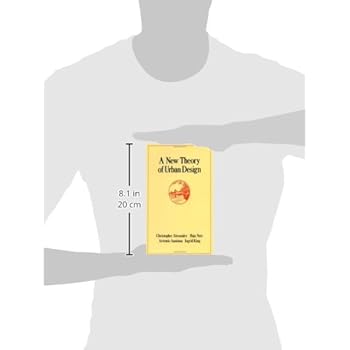A New Theory of Urban Design (Center for Environmental Structure Series)
Category: Books,New, Used & Rental Textbooks,Social Sciences
A New Theory of Urban Design (Center for Environmental Structure Series) Details
From the Back Cover It presents a new theory of architecture, building, and planning which has, at its core, that age old process by which the people of a society have always pulled the order of their world from their own being- its forms, in essence, the basis for a new traditional post-industrial architecture created by the people. Read more About the Author Christopher Alexander is a builder, craftsman, general contractor, architect, painter, and teacher. He taught from 1963 to 2002 as Professor of Architecture at the University of California, Berkeley, and is now Professor Emeritus. He has spent his life running construction projects, experimenting with new building methods and materials, and crafting carefully articulated buildings--all to advance the idea that people can build environments in which they will thrive. Acting on his deeply-held conviction that, as a society, we must recover the means by which we can build and maintain healthy living environments, he has lived and worked in many cultures, and built buildings all over the world. Making neighborhoods, building-complexes, building, balustrades, columns, ceilings, windows, tiles, ornaments, models and mockups, paintings, furniture, castings and carvings--all this has been his passion, and is the cornerstone from which his paradigm-changing principles have been derived. Read more

Reviews
I bought this book years ago and lent it to a developer who never returned it.So, I re-bought it recently through Amazon and am delighted I re-added to my Christopher Alexander collection.As a professional planner/urban designer/community 'instigator' I found this little book powerful in my own quest to bring about a new Progressive Movement -- community by community.The way Alexander and his cohorts describe how to do this is in almost direct conflict with what I consider the wrong-headed economic realities of the last century, and we must figure out how to change those before we keep creating huge plastic developments that have the shelf life of a carton of milk and are destroying out planet.



